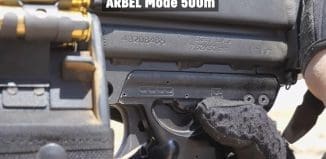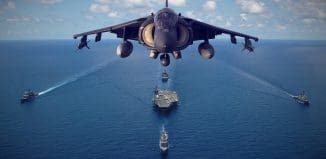Unmanned ACV will Operate in Challenging Environments
This post is also available in:  עברית (Hebrew)
עברית (Hebrew)
The U.S Army is interested in advanced military vehicle technology. Its armored combat vehicle experts are making plans to ask industry for military vehicle prototypes to demonstrate promising enabling technologies for a future generation of tracked unmanned combat vehicles.
Officials of the Army Contracting Command intend to issue a request for prototype proposals (RPP) for the Combat Vehicle Robotics (CoVeR) program. The PRP was issued on behalf of Army Tank Automotive Research Development and Engineering Center (TARDEC).
The Army’s CoVeR program seeks to develop autonomous vehicle mobility technologies to enable military tracked autonomous vehicles to operate in tough military environments at realistic speeds. The program is developing technologies that enable scalable integration of multi-domain robotic and autonomous systems, and is expected to develop foundational technologies for weaponized robotic platforms. The ultimate goal is to enable soldiers of the future to team up with new kinds of robotic battlefield vehicles that will allow for increased stand-off between themselves and enemy forces, according to militaryaerospace.com.
CoVeR is an outgrowth of the Army’s Wingman Joint Capability Test Demonstration, which applied autonomous technologies to Army unmanned Humvee wheeled combat vehicles. The Wingman project involved autonomous Humvees equipped with 7.62-millimeter machine guns. The project demonstrated the ability for soldiers to pilot these armed autonomous Humvees, and shoot the vehicles’ machine guns accurately.
Technologies developed for Wingman will feed into the CoVeR program, which will use larger combat vehicles for manned and unmanned teaming. These new autonomous technologies may enable the future soldier to manage several different unmanned combat and reconnaissance vehicles, as well as unmanned aircraft.
Tech demonstrators of the Robotic Combat Vehicle will be tested between 2020 and 202, reports military.com.





























